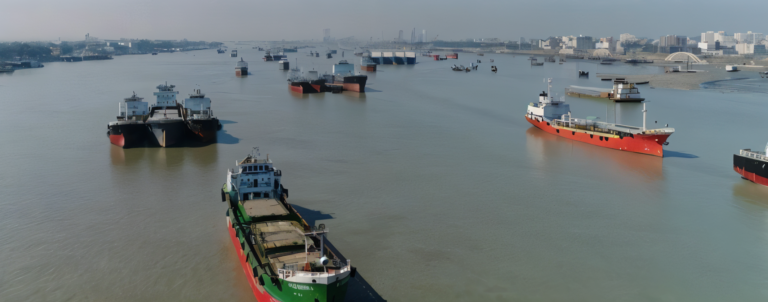Bangladesh Takes Action to Reduce Greenhouse Gas Emissions in Shipping Industry
Bangladesh has kick-started the development of a national action plan (NAP) to slash greenhouse gas (GHG) emissions from shipping, marking a ‘key’ step toward aligning the country’s maritime industry with global environmental regulations.
According to the International Maritime Organization (IMO), the action plan was officially launched at a recent workshop held in the country’s capital city of Dhaka, led by the Bangladesh Department of Shipping under the nation’s Ministry of Shipping, and supported by the IMO’s GreenVoyage2050 program initiated to assist developing countries in slashing their GHG emissions.
Both public and private sector players came together at the workshop to explore actionable steps that Bangladesh could take to breathe ‘greener’ life into its maritime industry. Priority actions identified include:
- Improving data collection
- Establishing emission baselines
- Promoting the use of cleaner fuels
- Retrofitting domestic fleets
- Strengthening training programs for seafarers and port managers
Opportunities for greener ship design and localized innovation were highlighted, with facilities like the Khulna shipyard identified as potential hubs for progress. Integrating port development strategies with national energy policies and sustainable shipbuilding practices was seen as essential to securing long-term success.
Discussions also examined potential financing solutions, such as concessional loans and incentives for shipowners, alongside capacity-building programs aimed at bolstering the maritime workforce.
A national baseline assessment is due to be conducted next, with a dedicated NAP Task Force to guide the development of the plan.
Director-General of the Department of Shipping, Mohammad Maksud Alam, emphasized that this strategy could revamp Bangladesh’s shipping industry at a time when global decarbonization momentum is increasing.
Astrid Dispert, GreenVoyage2050 Program Manager at the IMO, commended Bangladesh’s ambition to become a leader in sustainable maritime development.
Bangladesh: Tilting between hiccups and progress
In recent times, Bangladesh’s shipping industry has experienced a mix of advancements and challenges. In April 2025, the country secured $650 million from the World Bank to develop the Bay Terminal Marine Infrastructure Project in Chittagong to modernize the port’s facilities.
At the end of February this year, draft amendments to Bangladesh’s ship recycling and hazardous waste management legislation were made to align the shipbreaking sector with international standards and safety guidelines.
With thousands of vessels expected to reach the end of their operational lives by 2032, these amendments were crucial for Bangladesh, a country where a significant number of vessels are dismantled under hazardous conditions each year.
Bangladesh has been a leading destination for ship scrapping, but its shipbreaking and recycling sector has faced scrutiny due to accidents and substandard working conditions.
Despite being certified under the Hong Kong Convention’s guidelines, a shipyard in Chattogram gained international attention when a tanker exploded during a dismantling operation in 2024, resulting in injuries and fatalities.

